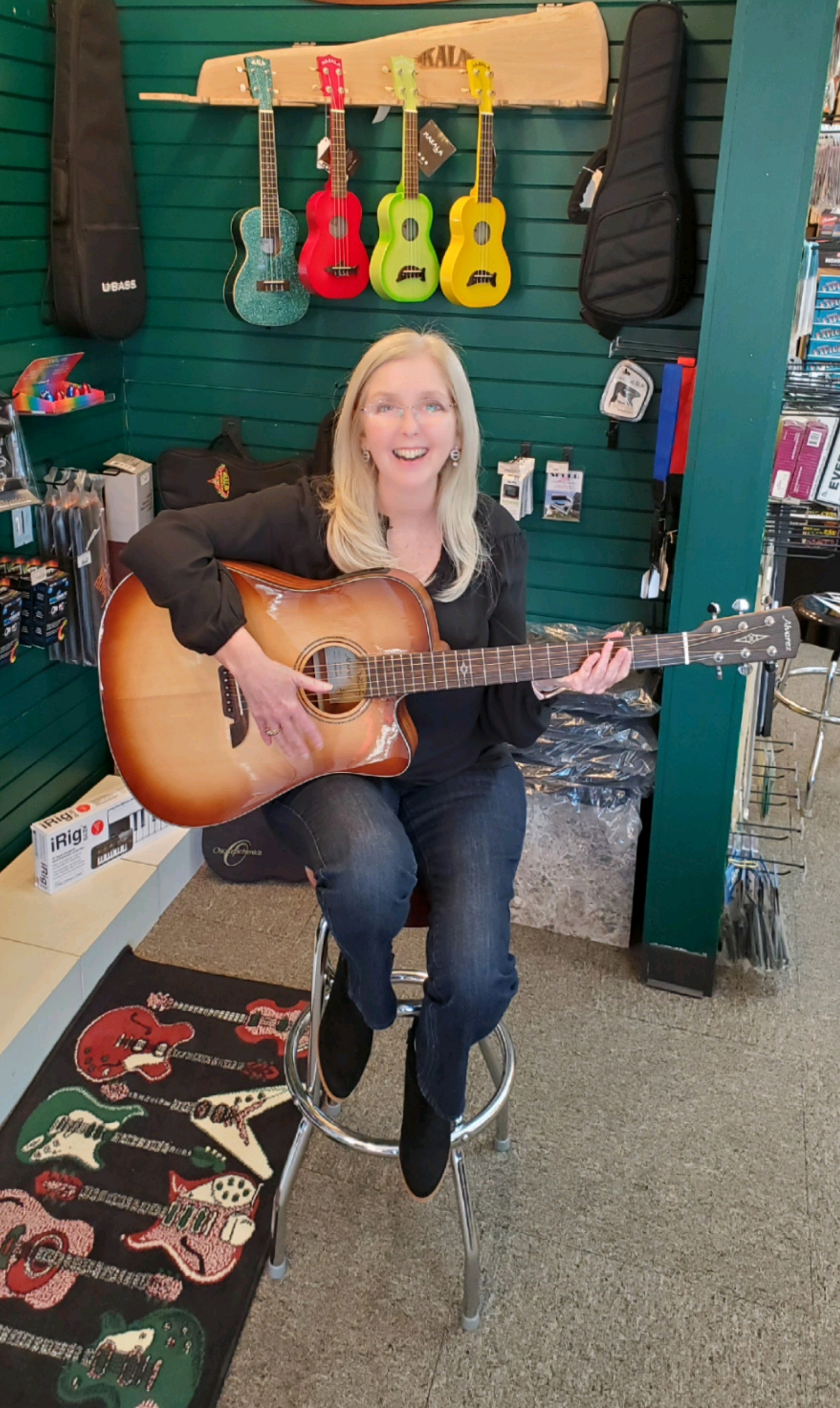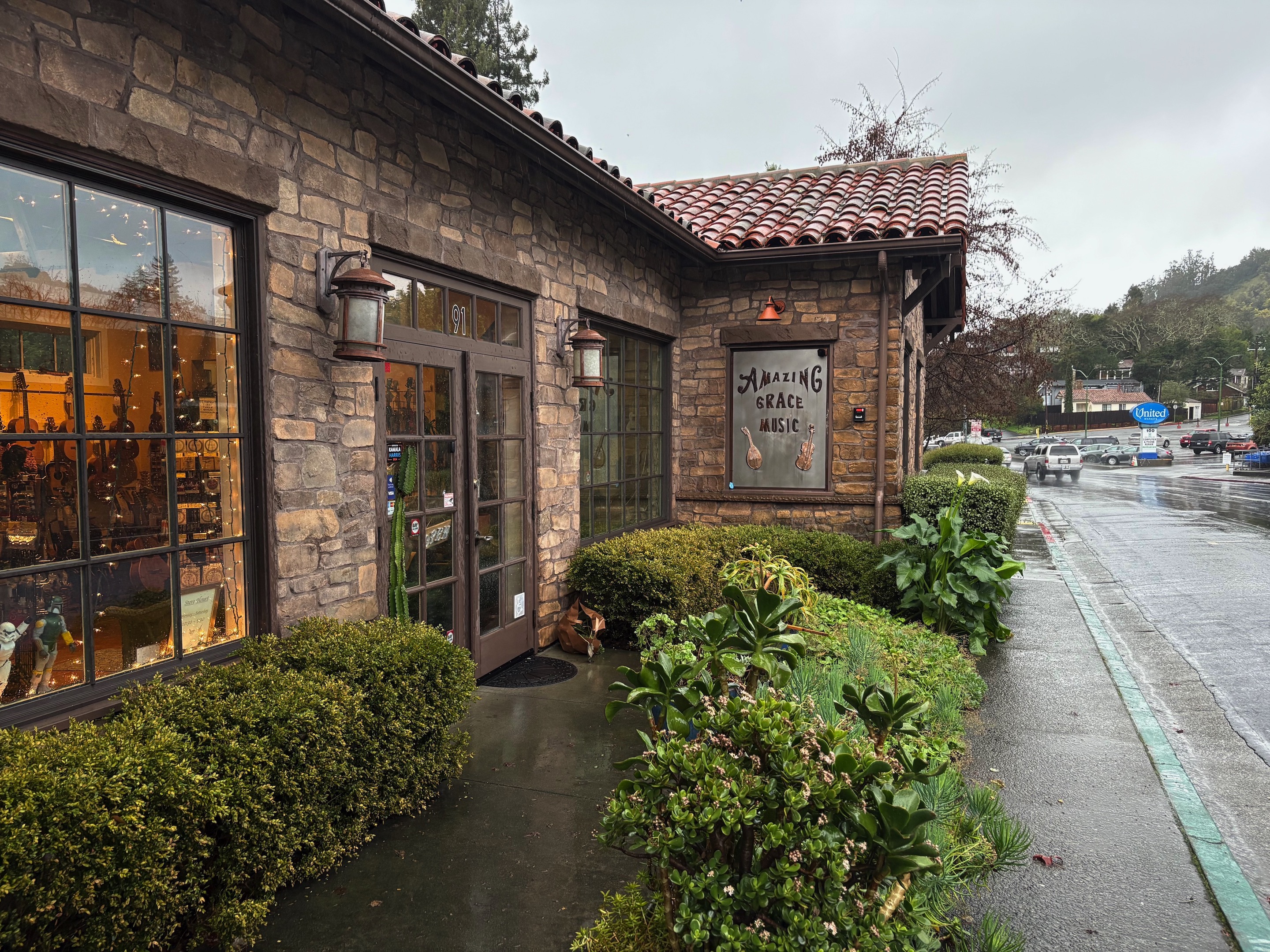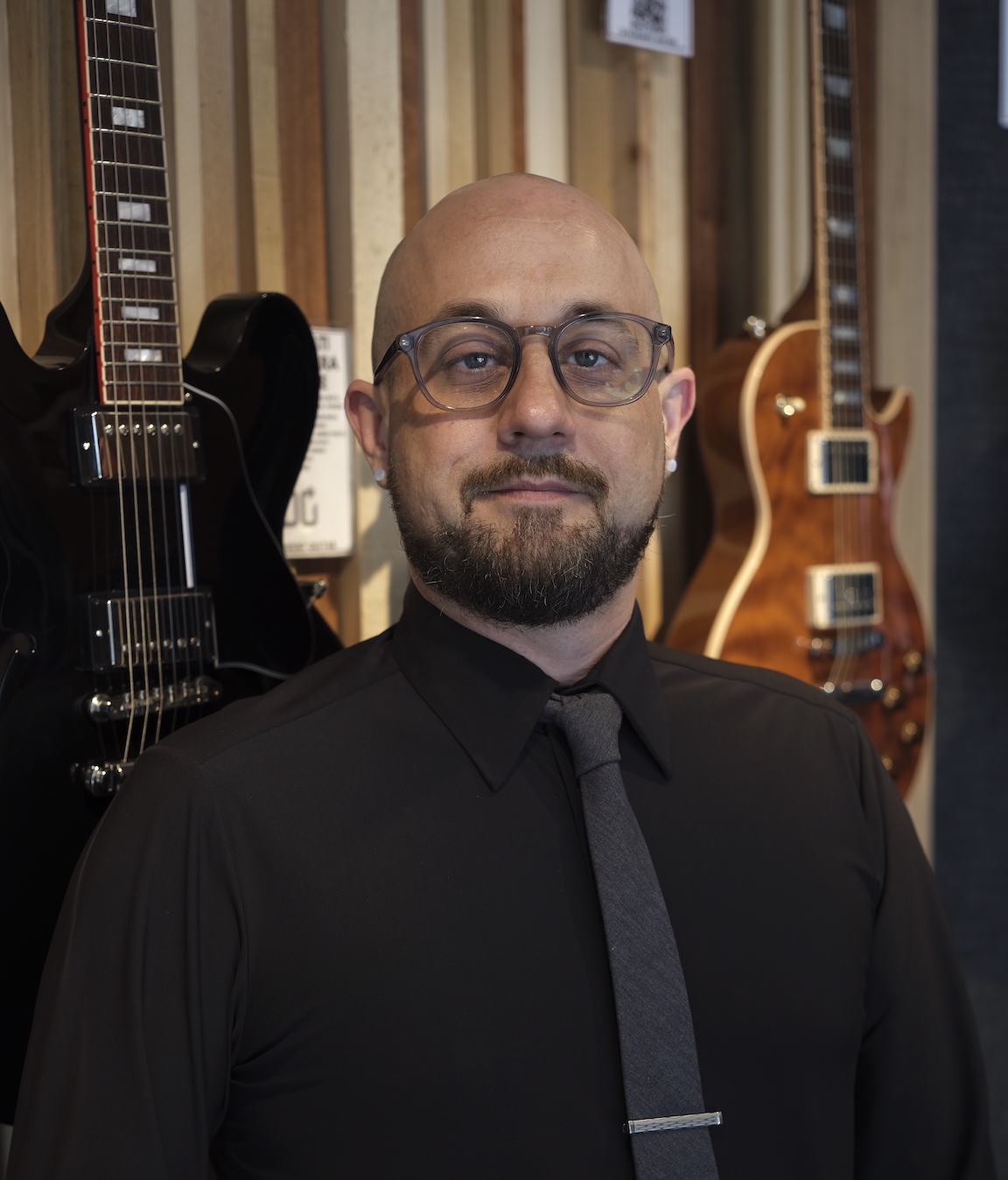
Kate Rich, vice president and general manager of The Creative Music Center
COVID-19 changed everything, in every industry, definitely including ours, but when it started, there was immediately tremendous concern around school music programs — a segment of MI that’s been, in many ways, its one of its lifebloods for decades. Music education is vital for so many reasons, but when it became clear pretty immediately that band rooms and orchestra stages were a perfect way to spread the coronavirus, it was disconcerting to say the least.
Two years later, school music programs have rallied considerably and made a lot of adjustments to operate safely, and the MI retailers and suppliers who help them make it all happen have been right there with them. But there have been many caveats and twists and turns along the way. One thing seems clear: things are not back to normal, and most question if we’ll ever really get back to what we consider normal.
Bill Harvey, president of Buddy Rogers Music in Cincinnati, feels that when students returned to school music programs, they wanted to stay. “When they got the chance to get back to school and play live and do the performances and be with their friends, from my view [it] seems like they’ve embraced that pretty strongly and don’t want [a shutdown] to happen again. The wild card here is the variants weakening and weakening.”
Harvey feels mask wearing is “politically correct.” “I just see that at some point those are going to go away,” he said. “We’re going to be playing again and everything [will be] getting back to normal, at least that’s my hope.” He predicts this will come in the next two to three years.
Jonathon Breen, president of The Music Shoppe in southern Illinois, isn’t so sure. “The idea of returning to normal, I don’t know that you would ever return to pre-COVID activities fully,” Breen said. “You are seeing a return already to some of the activities that were verboten during the height of the pandemic and then, going forward, it’s just going to be figuring out how do we continue to offer these activities and opportunities in a safe environment.”
Breen reported frustration among the band-and-orchestra directors he works with in schools. “I don’t know that I have anybody who’s optimistic really,” he said. “We have some [who] are just tired. This has been a long couple of years and they’ve had to get very creative and the end-results are not what they’re used to.”
During these past two years, The Music Shoppe has actively been “shaking the trees,” looking for and finding new schools to work with. Breen reported the level of success his stores see out there among school music programs is a mix. “Some schools are at or above 2019 levels, others are way below 2019 levels.”
He also reported witnessing some teacher burnout, both among new and experienced teachers. “Young teachers who have [just] started and don’t know anything other than the pandemic are going to get frustrated very quickly with trying to teach in these conditions and then move [on] because they just can’t achieve what they were wanting to do. Or teachers who have been teaching for a long, long time now [are] having to do things in a vastly different way with vastly different results. [They could be] going, ‘Man, I’m just too tired to do this.’”
Tristann Rieck, owner of Brass Bell Music Store in Milwaukee, said she’s observed that teacher mood seems to depend on how supportive their school’s administration is. “The ones who are feeling supported by their administration, the ones who have administrations that are listening to their ideas are, the ones who seem to be doing the best,” she said. “The ones where they feel like they have to keep their head down, they shouldn’t say anything, they don’t want to make any waves, I think those are the ones who are exhausted and tired and maybe feeling like they don’t know if they want to do this that much longer.”
She reports a mix in terms of the mood among school music directors. “We hear success stories and then we hear the sad ones where they’re losing students or the students want to wait until it’s not going to be virtual,” Rieck said.
However, she praised schools’ perseverance overall. “The schools doing it just right — keeping the distance, making sure that they’re masking, making sure they’re using bell covers,” she said. “A lot depends on the districts, but folks certainly have learned how to make it work.”
Asked if she feels school music programs will ever get back to what one would consider normal, Rieck was enthusiastic, but stated she doesn’t see it happening. “Oh my God, would I love it to be back to normal? Of course. Who wouldn’t?” she said. “I don’t know if that’s very realistic. I have this feeling we’re going to see a spike every winter for a half a decade. I don’t think this is going away. I think that learning how to mask and social distance and do it right, that’s going to become part of our normal.”
Kate Rich, vice president and general manager of The Creative Music Center in Monroe, Connecticut, echoed this. “I think it’s going to be an ongoing process to head towards a new normal,” she said. “It seems that we’re going to have these variations of COVID developing, but I also think that we’re getting better at working with them, figuring out how to handle things. Connecticut in particular has been very committed to finding a way to keep students in school during a flare-up.”
Happily, Rich has seen some real positivity among teachers, with one telling her last fall, “One of the great outcomes for me with all of this is it reaffirmed my career choice, and I love what I’m doing. I love my students and teaching, and I’m so excited to get back at making music.”
Another positive — Rich pointed out that keeping school music alive gives students who may be struggling a bright spot in a particularly trying time. “Many more of the kids are having anxiety, depression, mental health issues [that are] COVID related,” she said. “There are so many different things they’re just inundated with these days. And I do think that those kids [who] start to participate in music [can find] that healing component to music.”
Rieck pointed this out as well. “I think the students [who] are involved in music are appreciating it,” she said. “This is one of the things they look forward to in their school day. It was always that place where you could go to just relax and de-stress, and then connect in different ways with your peers at school.”
A Great Blessing
Rick Thacker, president and owner of Plum Grove Music in Hebron, Indiana, was quick to point out the politics involved in this situation overall. He reported that at the NASMD Convention, which was co-located with Summer NAMM in Nashville, Tennessee, last July, “Everybody was saying the same thing. It was, if you’re in a red state, you’re good. If you’re in a blue state, you’re not.”
He pointed out that his store’s location allows it to straddle between the two ideologies with respect to schools contending with COVID-19.
“We’re sitting in Chicagoland, right in northwest Indiana,” he said. “So based out of Indiana, we had definitely an easier time than most folks. Probably 80 percent of our business is in Indiana, and the 20 percent in Illinois is mostly parochial and private schools. So we have very little public school presence in Illinois, which turned out to be a great blessing, because it was the public schools in Illinois that were the most locked down and unreasonable when it came to their programs.”
The Midwest Clinic in Chicago in December 2021, which Thacker attended, saw plenty of people playing horns in public, something that was ruled impossible when all this started. Thacker felt that came down to not so much the evolution of social distancing, instrument hygiene and PPE, but more just common sense. “If you’re sick, you shouldn’t be at Midwest Clinic anyway, much less blasting a horn everywhere,” he said.
Thacker feels that response to COVID-19 should come down to individual choice, as it’s likely here to stay. “It’s something that we’re having to live with at this point and just everybody makes their own personal decisions,” he said, adding that he felt “totally comfortable” at Midwest. “The new normal is almost like the normal you choose to live in.”
He compared life in the era of COVID-19 to life after 9/11, which led to the creation of the Transportation Security Administration. Suddenly, what you could do at airports — Thacker cited as an example meeting your family at the gate — was no longer possible. He also pointed out that “politics is very local” and that affects this situation. “It’s almost up to an individual’s perception of the danger and politicians’ opinions on how to best serve their constituents or protect people from it,” he said.
Doubling Down
Breen addressed one of the biggest problems school music retailers now face as they resume in the pandemic — the recruitment gap. He said he doesn’t know whether or not programs will fully recover from the loss of the 2020–2021 school year. “Many programs didn’t have any band at all for beginners,” he said. “And then that hole follows them clear through high school and will hamper them. It poses challenges in terms of general enrollment numbers in the programs because you lose a class and then you deal with the skills gap of students missing a year who are already enrolled in band. For example, marching band this year, the sophomores this year never marched. The freshmen this year have never marched. And the juniors this year marched two years ago as freshmen.”
Breen reported that the effect on the music is noticeable. “For most high school marching bands at festivals, what you saw was in general they were not performing at the levels that they were performing prior to the pandemic,” he said.
Thacker reported that he’s seen some school music directors arrive at a simple solution — doubling down. “A lot of them were able to work with their administrations again to be able to double-recruit or to be able to get creative with the schedule so that they didn’t have a gap year that rippled through their program over the next five years,” he said.
Another big concern for stores who work with school music programs when the pandemic began was rentals. Breen said his store is currently doing well on that front. “Our return rates are not higher than they would normally be,” he said. “We actually rented more instruments in 2021 than we did in 2019.”
Thacker reported that in 2020, his store rented out half of what it did the year before, but recognized it could have been a lot worse. “Our friends in Washington state were down 87 percent, where they only had 13 percent of what they had the year before,” he said. “So we were very grateful, and all glory to God. He sent us a lot of step-up sales.”
Before It Was Cool
Doug Steinmetz, director of school service sales with Yamaha Corp. of America, offered a viewpoint on where school music is overall, nationwide. He said it adds up to something different than what an individual store owner may tell you. “There’s a picture that’s been painted where it looks like participation and access is roughly back to pre-pandemic levels, but it’s misleading because there are big gaps,” Steinmetz explained. “There are some areas that are heavily over-performing [and at] pre-pandemic levels because of dual enrollment or new programs or better access, better funding, and then there’s some that are still badly underperforming,” he said.
Steinmetz praised the evolution of instrument hygiene at retail. “I will say the dealers have stepped up hygiene practices in a huge way,” he said.
Thacker boasted that they’d always been ready for this: “We were sanitizing before it was cool.”
Like many asked to speculate on where school music is headed, Gina Clement, vice president of marketing and business development at Gator, described a new normal. “What we’re hearing is that whether it’s COVID, whether it’s the flu, this is now how educators have to prepare their programs,” she said. “[They] just now have to consider it to be part of the standard — part of your prep process and protocols.”
Steinmetz said getting back to what one would call normal is not possible. “We don’t know what normal is,” he said. “This will, in my opinion, just continue to morph and change for the coming couple of years. Will we eventually get to the point where there’s no masks, no distancing and it’s safe to play wind instruments inside in all districts across the country? Sure. Will it happen all at the same time? No way.”
Michael Kamphius, managing director of the division of education at Conn-Selmer, agreed. “We’re not going to wake up one day and it’ll be a light-switch moment where we’re back to pre-pandemic times,” he said. “I see it being a marathon, not a sprint.” MI












